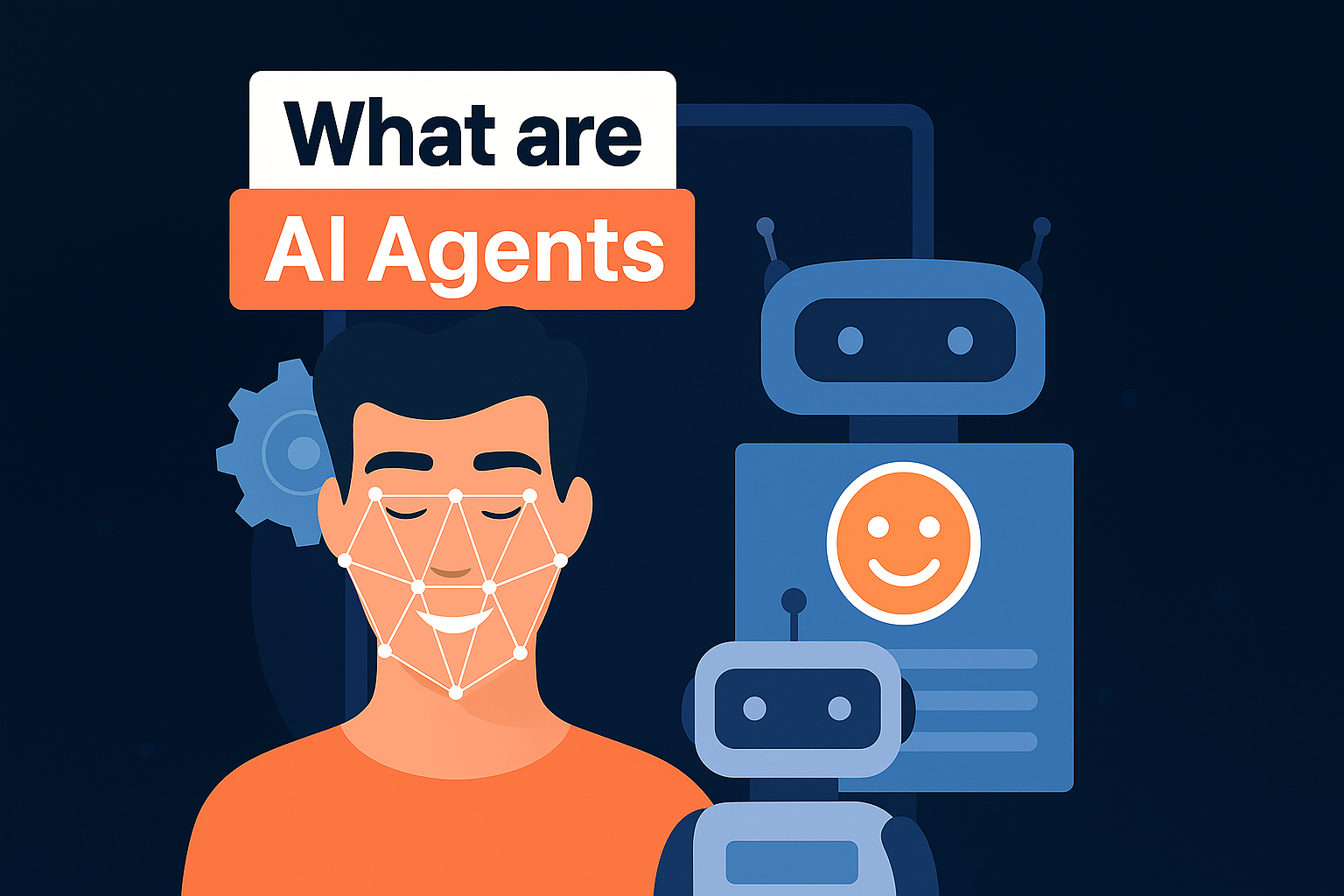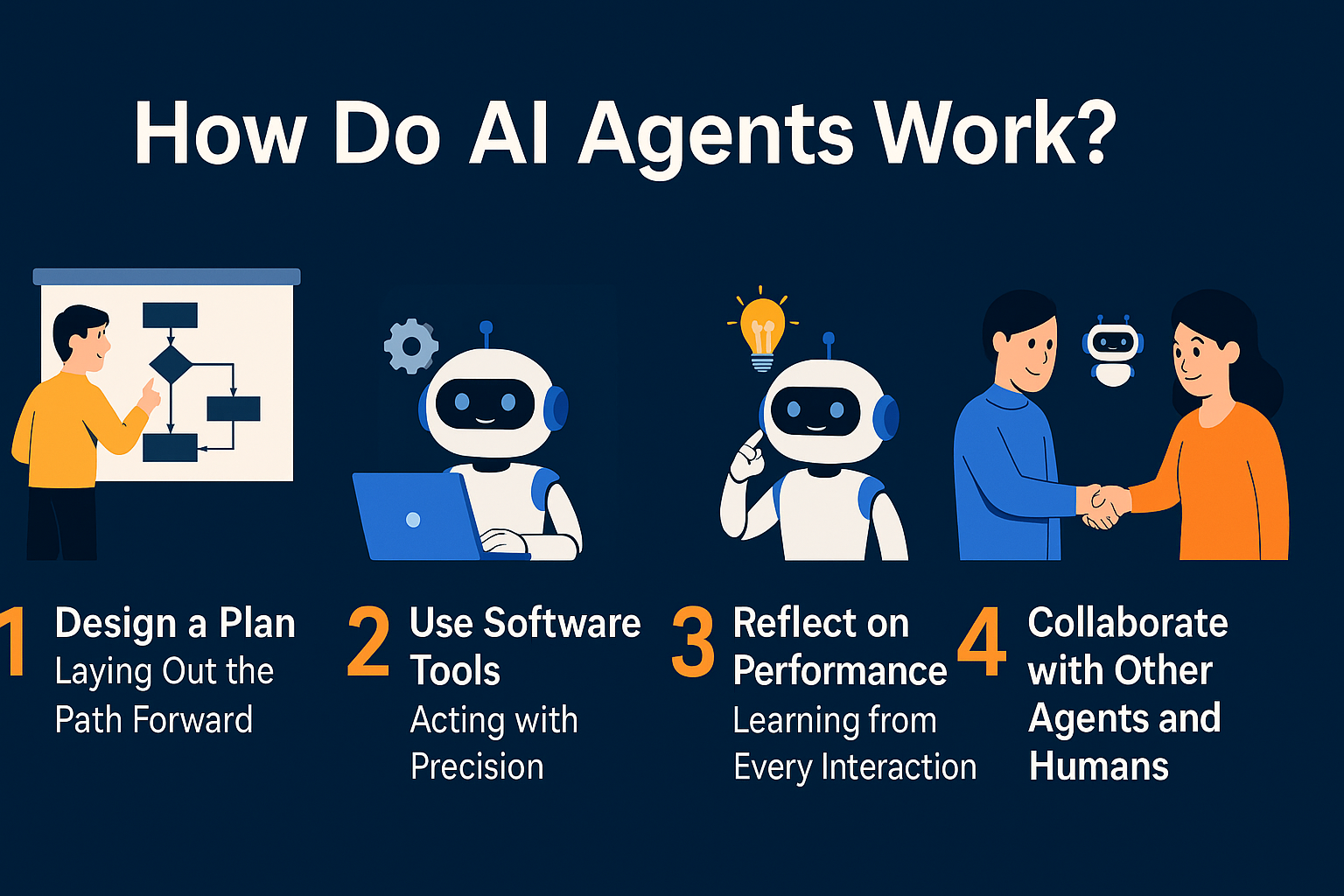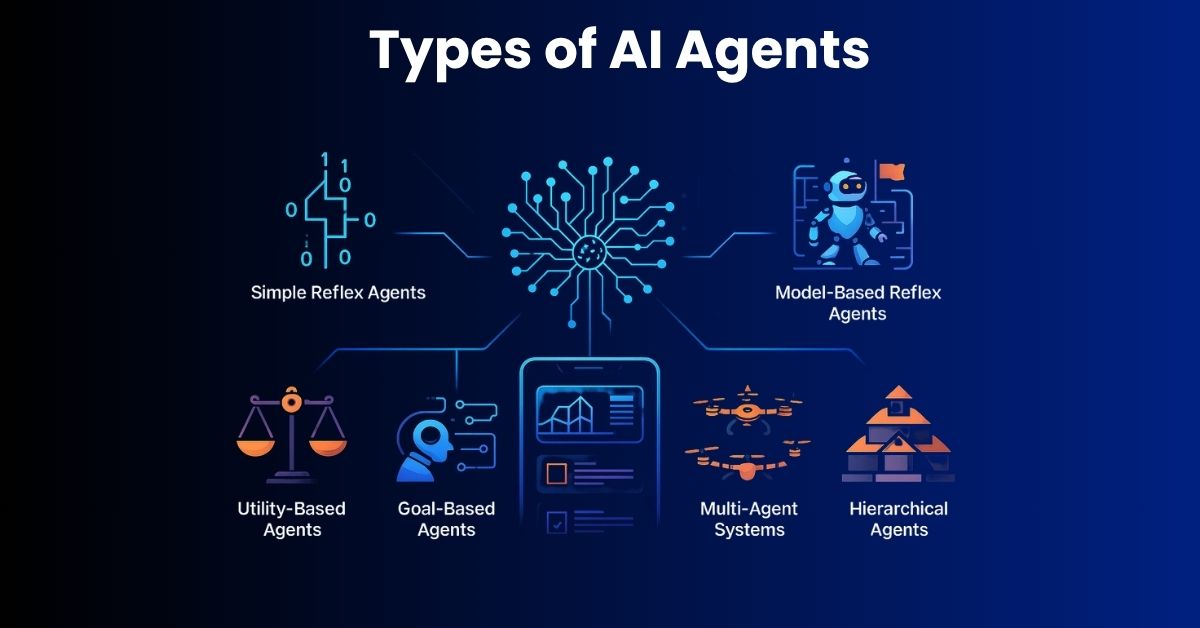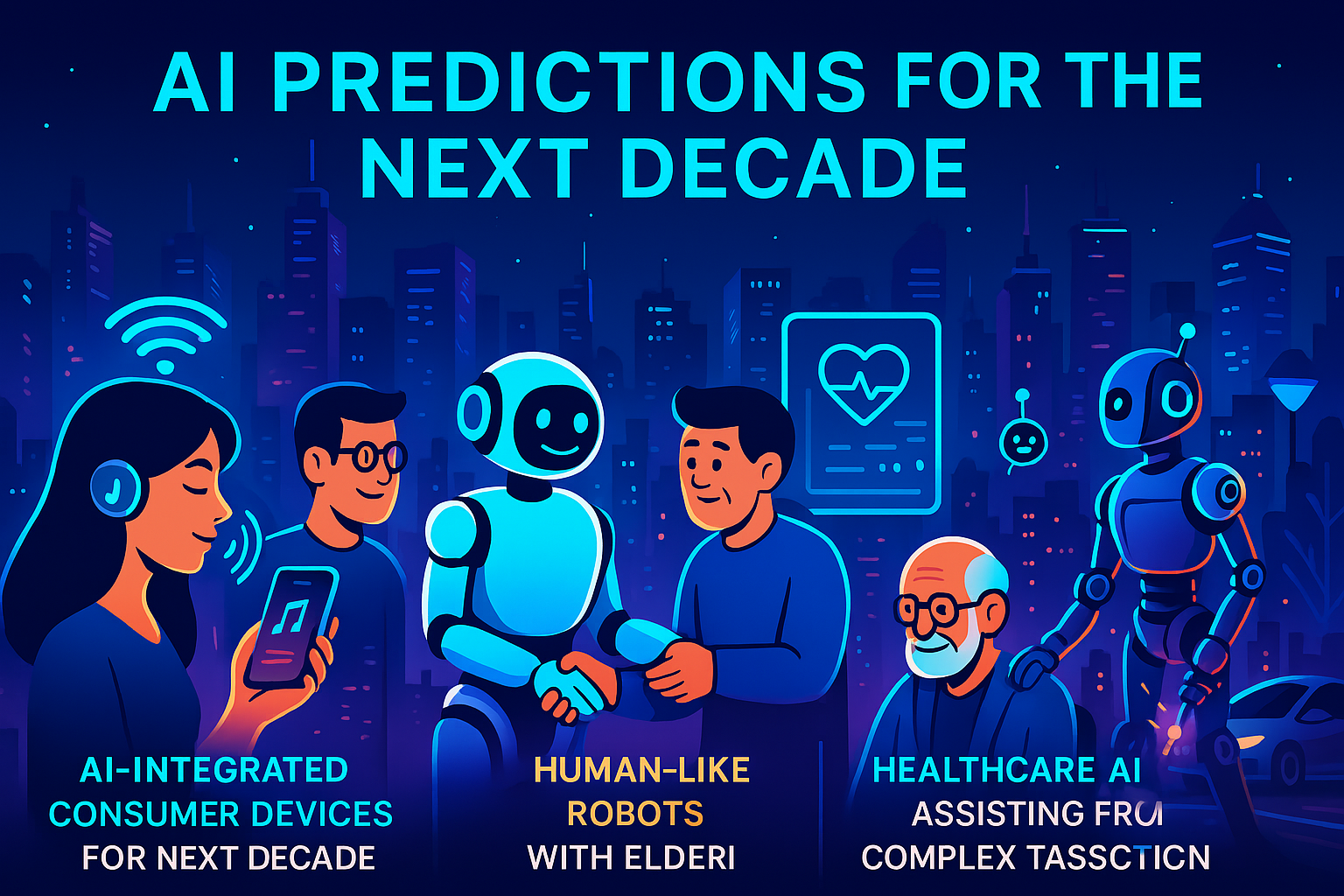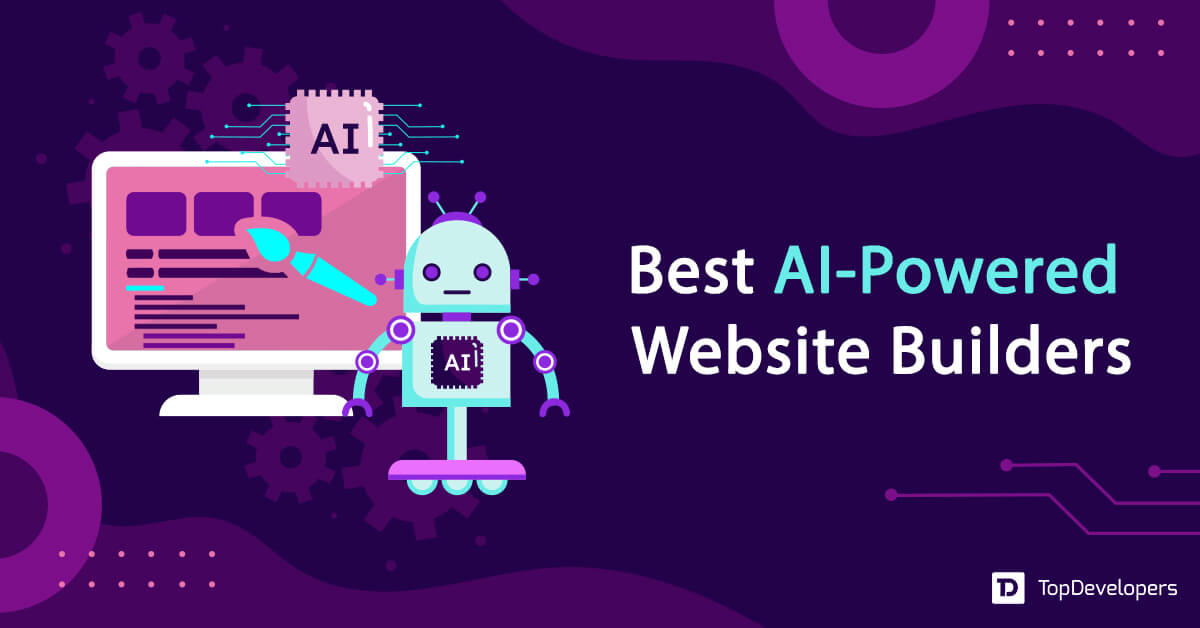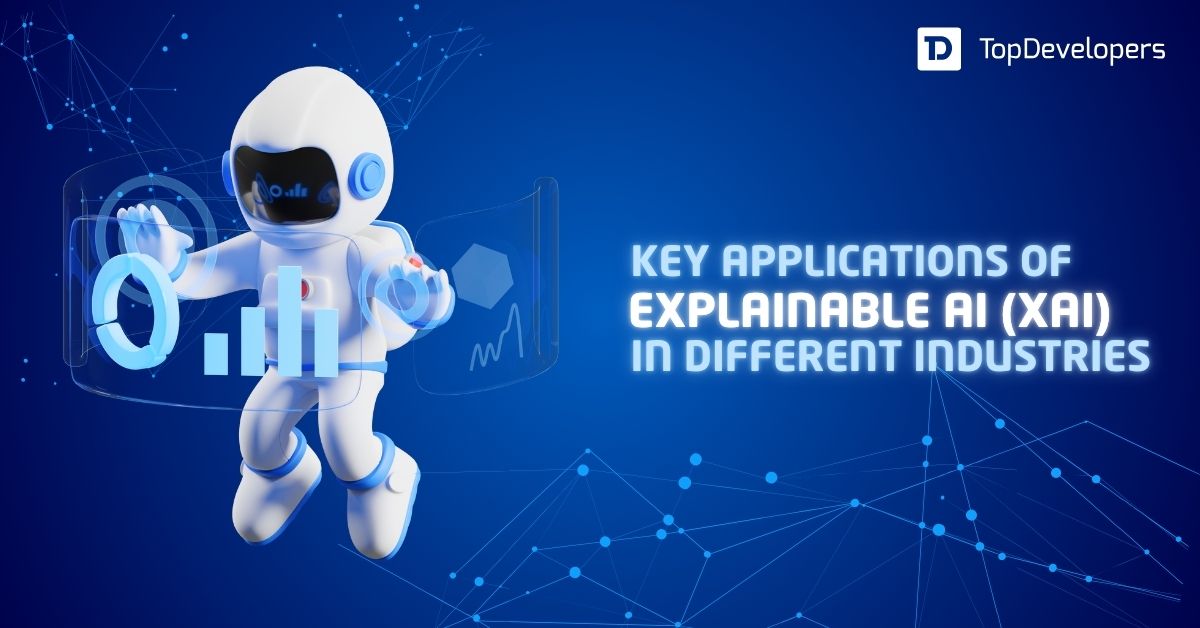
Table of Contents
- What are AI Agents? A Comprehensive Guide
What are AI Agents? A Comprehensive Guide
Artificial Intelligence (AI) agents are revolutionizing the way we interact with technology, enabling machines to make decisions and perform tasks independently with minimal human oversight. These intelligent agents are transforming modern amenities, from simple virtual assistants to self-driving vehicles, and are poised to have a significant impact on various industries. Machine learning and natural language processing enable self-driving systems to perform tasks. Statista says that by 2025, the worldwide AI agent industry will be worth $27.4 billion. This money will be used to fuel chatbots, virtual assistants, and automated processes in many different fields.
AI agents are becoming more and more significant in many areas these days. AI-powered chatbots and virtual assistants may help customers with everything from answering queries to setting up appointments.
AI agents might help make operations operate more smoothly, save money, and increase productivity by taking care of uninteresting tasks. AI agents make things simpler and more useful for humans, whether they’re assisting with ordinary tasks or delivering personalized advice. But the first step in finding out how to cope with the changing world of the digital era is to understand AI agents. If you’re a business leader who wants to employ AI in your profession or simply someone who wants to learn more about the future of technology.
What are AI Agents?
An autonomous software system is a kind of artificial intelligence agent that is able to perceive the environment, decide, and take actions so as to attain some predetermined goals with minimal human intervention. It also incorporates methods such as machine learning and reasoning; it evolves and gets better with time and hence has application in automated tasks and solving multi-dimensional problems.
How do AI Agents Work?
The functionality of AI agents includes the processing of various inputs (text, images, or data) with the help of machine learning models, arriving at decisions, and performing actions independently. They integrate natural language processing (NLP), computer vision, and reinforcement learning into analyzing information, learning through interaction, and getting better over time, allowing for virtual assistants, fraud detection, and predictive analytics applications.
Let’s break down the four foundational behaviors that make these agents truly intelligent.
1. Design a Plan: Laying Out the Path Forward
Before taking action, an AI agent first figures out what needs to be done. It identifies goals, breaks them into steps, and sequences those steps into a plan. Think of this like a strategist mapping out a project timeline, only it’s done in milliseconds.
Example: A customer support agent receives a request to troubleshoot a billing issue. It first defines the type of problem, gathers relevant context, and outlines a resolution path.
What’s powerful here is the dynamic planning. If something changes mid-task, a new input or an unexpected barrier, the agent can adjust its plan in real time.
2. Use Software Tools: Acting with Precision
Once a plan is in place, the AI agent doesn’t act alone; it leverages a suite of digital tools to get things done.
These tools can include
- Data analysis platforms
- APIs for system integration
- Code generation engines
- Spreadsheets, dashboards, or CRMs
- Example: A financial agent tasked with generating a report may query databases, run calculations, and generate a chart all automatically, without human input.
What’s key here is that AI agents choose which tools to use based on the task, similar to how a consultant picks the right software for a project.
3. Reflect on Performance: Learning from Every Interaction
AI agents aren’t static. After completing a task, they often evaluate how well they did, asking questions like
- Did I get the right result?
- Was my reasoning sound?
- Is there a better way to approach this next time?
This reflection is often powered by Best large language models (LLMs) acting as internal “reasoning engines.” Over time, this self-assessment loop helps agents improve accuracy, avoid repeated mistakes, and deliver smarter outcomes.
4. Collaborate with Other Agents and Humans
Perhaps the most transformative capability is the final one: collaboration.
Modern AI agents are increasingly designed to work in teams, whether that means syncing with other agents in a supply chain or supporting human professionals on a shared task.
Example: In a product launch, one agent might handle market research while another manages timeline coordination. A human PM oversees the process but doesn’t need to micromanage each step.
Multi-agent collaboration unlocks massive potential for orchestrating complex, cross-functional work at scale without the overhead of traditional task management.
Together, these four design principles make AI agents far more than just bots. They are adaptive digital co-workers capable of autonomous decision-making, continuous learning, and real-time collaboration in ways that are reshaping how businesses operate.
Examples of AI Agents in Real Life
AI agents are already a huge part of our lives, even if we don’t know it. Here are some common examples:
- Virtual Assistants: Siri, Alexa, and Google Assistant are all examples of this. You may speak to these AI bots to ask them to do things like put up monuments, check the weather, or control smart gadgets. They all work together to help you in real time.
- Chatbots: Many websites and customer service platforms now utilize AI-powered chatbots to answer inquiries. These AI bots can assist individuals in getting the information they need, answering their questions, and repairing issues without needing a human driver.
- Self-Driving Cars: AI agents can drive buses on their own, observing traffic signs and making adjustments as the environment changes. These automobiles utilize agents that break down data from cameras and sensors to make decisions
These real-life examples illustrate how AI bots can do work for humans in many different sectors. Artificial intelligence agents are playing a bigger and bigger role in technology these days. They help things function more efficiently and provide individuals experiences that are unique to them.
Explore: Best AI Agents Tools
Types of AI Agents: Which One Does What?
Just like your team has different roles—analysts, strategists, and developers—AI agents come in a variety of forms, each designed for specific types of decision-making and autonomy.
Understanding the main types can help you choose the right kind of intelligence for your business challenges.
Let’s break them down.
1. Reactive Agents: Fast, Simple, and Rule-Based
These are the “if this, then that” agents, fast and efficient, but with no memory of past interactions. They react to current inputs only.
- Use case: A basic customer chatbot that delivers scripted answers.
- Ideal for: Repetitive tasks with predictable outcomes.
2. Proactive Agents: Predictive and Purpose-Driven
Proactive agents don’t just respond; they anticipate needs and act ahead of time using pattern recognition and forecasting.
- Use case: A marketing agent that triggers campaigns based on customer behavior trends.
- Ideal for: Customer engagement, predictive maintenance, or workload optimization.
3. Hybrid Agents: The Best of Both Worlds
These combine the fast response of reactive agents with the strategic foresight of proactive ones. They can handle both routine tasks and unpredictable challenges.
- Use case: An operations agent that automates daily logistics but also re-routes deliveries when delays occur.
- Ideal for: Real-time decision-making in dynamic environments.
4. Utility-Based Agents: Goal-Oriented Optimizers
Utility agents don’t just complete tasks; they evaluate which outcome is best and pursue it using optimization models.
- Use case: A supply chain agent that picks the most cost-effective vendor while minimizing risk.
- Ideal for: Procurement, logistics, or any process with competing priorities.
5. Learning Agents: Always Getting Smarter
These agents improve over time by learning from experience. They often rely on machine learning models to adjust their behavior and boost performance with each iteration.
- Use case: An HR agent that refines candidate screening criteria based on past hiring success.
- Ideal for: Any area where conditions change often or success depends on adaptation.
6. Collaborative Agents: Team Players in a Digital Network
Designed to communicate and coordinate, collaborative agents work together or with humans to solve large or complex problems.
- Use case: A multi-agent system managing different phases of a product launch (R&D, marketing, compliance).
- Ideal for: Cross-functional workflows or distributed teams.
Also read: How to Build an AI Agent with ChatGPT
Benefits of AI Agents for your business
AI agents are transforming how organizations and individuals operate by automating tasks, enhancing decision-making, and delivering personalized experiences. Here’s a comprehensive overview of the key benefits:
Increased Productivity and Efficiency
- AI agents automate repetitive and complex tasks, freeing up human workers to focus on strategic, creative, or high-value activities.
- They operate continuously, 24/7, without fatigue, ensuring tasks are completed efficiently at any time of day.
- By handling more workload without a drop in quality, they maintain consistent performance regardless of volume or time.
Cost Savings
- Automating manual processes reduces labor costs and minimizes errors, leading to significant cost savings.
- AI agents optimize resource allocation, allowing organizations to scale operations without proportional increases in expenses. ⁵.
Enhanced Decision-Making
- AI agents process and analyze vast amounts of real-time data, providing actionable insights and supporting more informed, data-driven decisions.
- They use predictive analytics to forecast trends, customer behaviors, and market dynamics, enabling proactive business strategies.
Improved Customer Experience
- AI agents deliver instant, personalized responses, reducing customer wait times and enhancing satisfaction.
- They provide 24/7 support, ensuring customers receive assistance whenever needed.
- By leveraging customer data, AI agents tailor interactions, recommendations, and services to individual preferences, fostering loyalty.
Scalability and Flexibility
- AI agents can quickly adapt to changing workloads or customer demands, scaling their operations up or down as needed without the logistical challenges of hiring or training new staff.
- They are versatile and can be deployed across various domains, from customer service to data analysis and operations management.
Error Reduction and Consistent Quality
- Unlike humans, AI agents do not suffer from fatigue or distraction, resulting in fewer mistakes, especially in data-intensive or repetitive tasks.
- Their ability to self-examine output and correct errors ensures higher accuracy and reliability.
Competitive Advantage
- Early adopters of AI agents gain a significant edge by streamlining operations, accelerating innovation, and responding more quickly to market changes.
- AI agents enable businesses to focus on high-impact areas, driving growth and customer loyalty.
Actionable Insights and Strategic Growth
- AI agents turn every customer interaction into valuable data, providing leaders with real-time metrics to refine strategies and demonstrate clear ROI.
- Their integration supports quick deployment and lasting impact, making it easier for organizations to innovate and stay ahead.
Use Cases for AI Agents: Where They’re Making a Real Impact
AI agents aren’t just theoretical breakthroughs; they’re already reshaping the way modern businesses operate. Whether it’s streamlining operations, improving customer experiences, or accelerating product development, these intelligent systems are proving their value across industries.
Let’s explore how AI agents are being applied in the real world and where you might see the biggest wins.
1. Financial Services: Automating Accuracy and Insight
From managing risk to reconciling reports, financial teams are under constant pressure to be fast, accurate, and compliant. AI agents step in to handle repetitive, high-stakes processes with minimal error.
How they help:
- Automatically flagging anomalies in accounting records
- Extracting insights from complex financial documents
- Managing cash flow projections and payment prioritization
2. Human Resources: Smarter Talent and Workforce Management
HR teams juggle everything from recruitment to employee engagement, often across multiple systems. AI agents can act as intelligent assistants, helping HR teams move from reactive to proactive.
How they help:
- Screening resumes and ranking top-fit candidates
- Automating time-off approvals and benefits inquiries
- Creating personalized learning or career development paths
3. IT & Software Development: Scaling Without Burning Out
For IT teams and developers, time is a premium. AI agents can take over repetitive technical tasks and ensure systems run smoothly without the late-night fire drills.
How they help:
- Automating code reviews and testing cycles
- Managing cloud infrastructure setup and cost optimization
- Monitoring cybersecurity threats in real time
4. Marketing & Commerce: Personalization at Scale
Modern marketing is data-driven and fast-moving. AI agents make it possible to respond to trends and personalize customer engagement without adding headcount.
How they help:
- Analyzing customer behavior to tailor product recommendations
- Managing multichannel ad campaigns based on live performance data
- Predicting buying intent and optimizing conversion paths
5. Procurement & Supply Chain: Resilience Through Automation
Supply chains are complex, global, and prone to disruption. AI agents bring visibility and adaptability to processes that were once manual and slow to react.
How they help:
- Vetting and recommending suppliers based on performance data
- Flagging potential delivery delays before they impact fulfillment
- Automating contract generation and vendor onboarding
Predictions for AI Agents in the Next 5-10 Years
We may expect AI agents to become smarter, be able to function on their own, and be a bigger part of our daily lives in the future. In the next 5 to 10 years, we may anticipate the following:
Ubiquity in Consumer Devices
AI agents will be omnipresent in practically every device we use, from smart homes to smartphones. These bots will provide each user a different experience, figure out what they need, and aid with things like home automation, tracking fitness, and finding things to do.
Human-like Interaction
Improvements in natural language processing and machine learning will make it easier for AI bots to communicate with humans. Not only will these agents be able to hear verbal commands, but they will also be able to understand the situation, the feelings, and the intent of the orders on a deeper level. This will make conversations appear more natural and easy.
AI in Healthcare and Aging
AI agents will play a bigger and bigger role in healthcare since they can create personalized treatment plans, monitor patients’ health, and aid with diagnoses. As people become older, AI agents will assist in taking care of them by keeping a check on their health, keeping them company, and keeping track of their medications.
Smarter, More Autonomous Robot
Robots with AI agents will be able to execute activities that need both precision and judgment in the next 10 years. These robots will be a part of everyday life, from delivery drones to self-driving automobiles. They will make things simpler and more efficient.
AI agents have a bright future ahead of them, with emerging AI trends appearing in the metaverse, robotics, and creative fields. These developments will affect the employment market, but they will also provide people new possibilities to work together and come up with new ideas. AI agents will have a huge impact on both our lives and the economy as they become smarter and become more a part of society.
Conclusion
AI agents are quickly becoming essential tools for driving productivity, efficiency, and innovation across industries. As organizations look to stay competitive in a rapidly evolving landscape, integrating intelligent, autonomous systems is no longer optional; it’s strategic.
To explore how AI agents can accelerate your transformation, check out some of the top AI agent development companies leading the charge in building scalable, enterprise-ready solutions using ai agent.
FAQs about AI Agents
1. What are AI agents, and how do they work?
AI agents are autonomous software programs that perceive their environment, make decisions, and take actions to achieve specific goals. They operate using algorithms, machine learning, and natural language processing to interact intelligently with users or systems.
2. What are the different types of AI agents?
Common types of AI agents include simple reflex agents, model-based agents, goal-based agents, utility-based agents, and learning agents each varying in complexity, adaptability, and decision-making capabilities.
3. Where are AI agents used in real-world applications?
AI agents are used in virtual assistants (like Siri and Alexa), chatbots, autonomous vehicles, robotics, smart home systems, trading platforms, and customer support automation.
4. What is the difference between an AI agent and a chatbot?
A chatbot is a popular type of AI agent focused on conversational tasks, while AI agents can perform a broader range of actions, including decision-making, planning, learning, and interacting with various environments beyond chat interfaces.
5. How can businesses benefit from using AI agents?
Businesses use leading AI agents to automate repetitive tasks, enhance customer experience, analyze data in real time, optimize operations, and deliver personalized interactions — improving efficiency and reducing costs.
 Gillian Harper
| Jun 18, 2025
Gillian Harper
| Jun 18, 2025
A professionally engaged blogger, an entertainer, dancer, tech critic, movie buff and a quick learner with an impressive personality! I work as a Senior Process Specialist at Topdevelopers.co as I can readily solve business problems by analyzing the overall process. I’m also good at building a better rapport with people!
